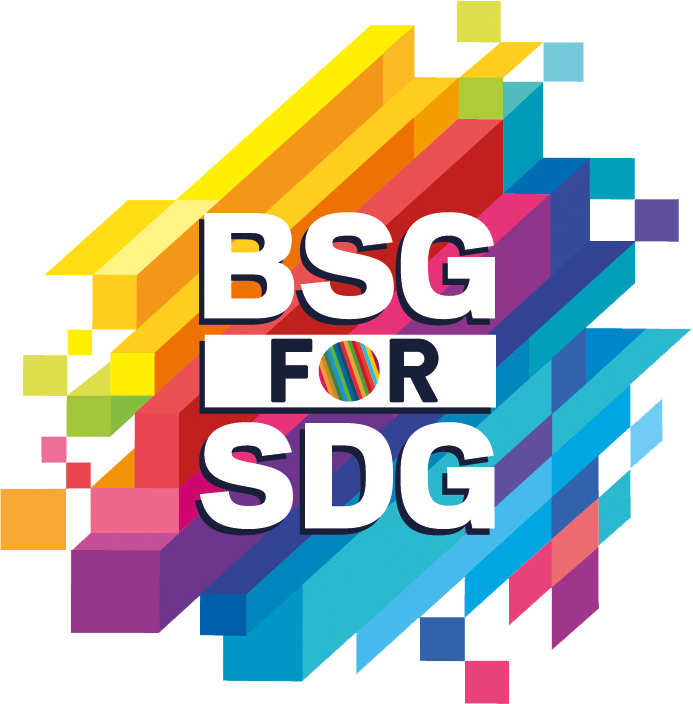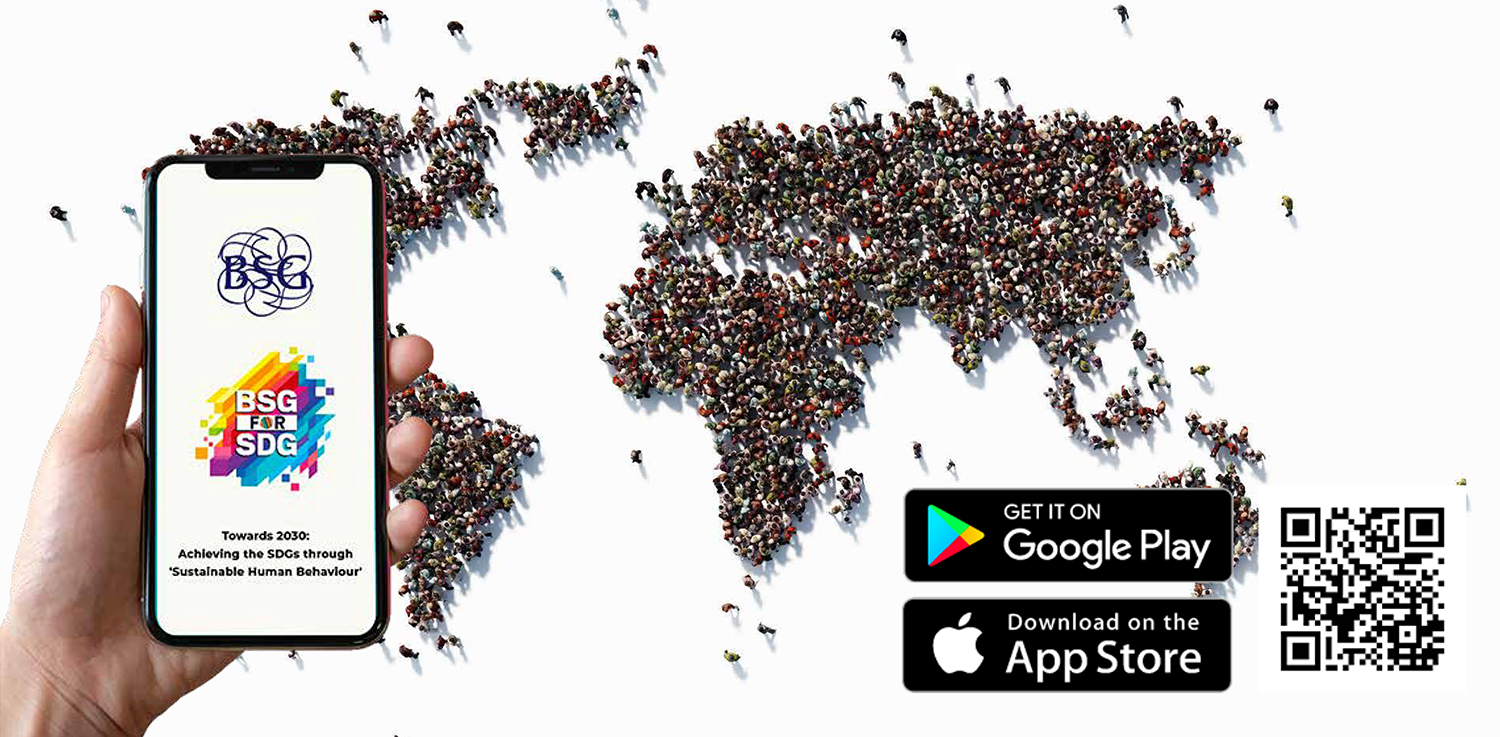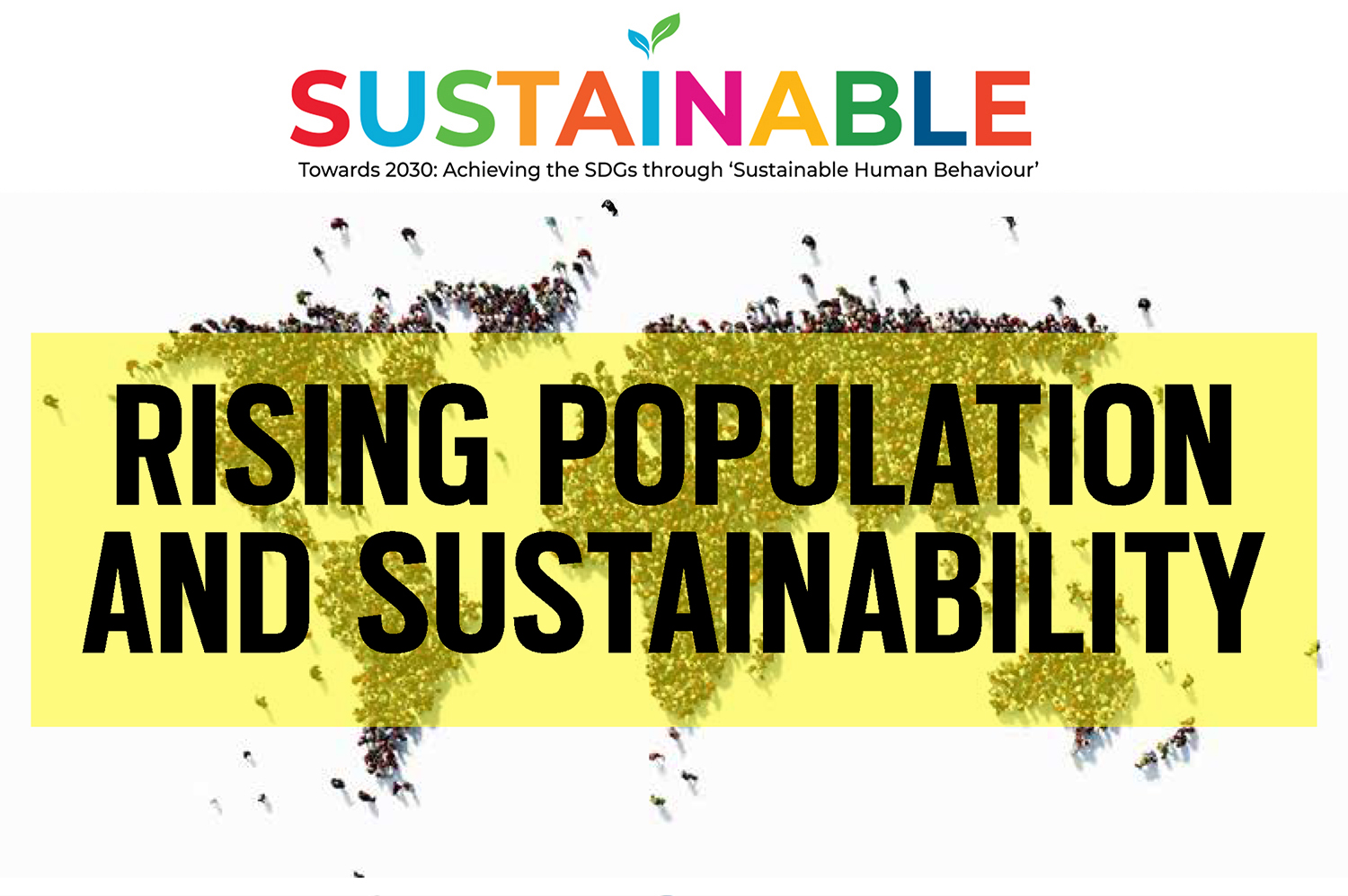
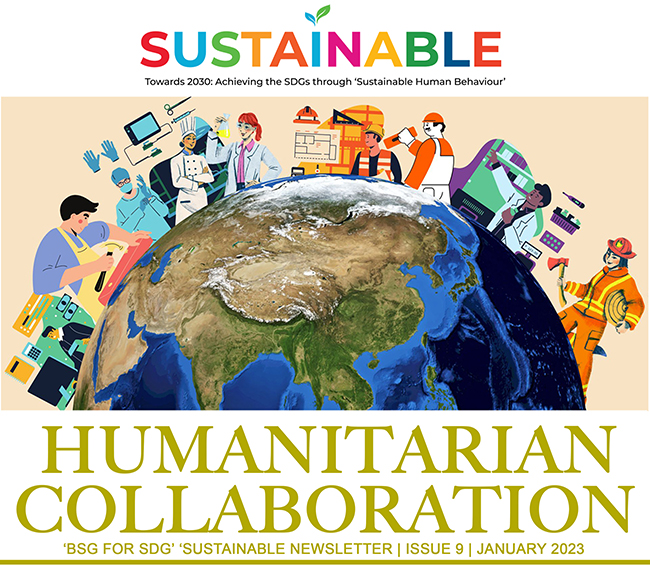
Greetings from BSG Chairperson Mr. Vishesh Gupta
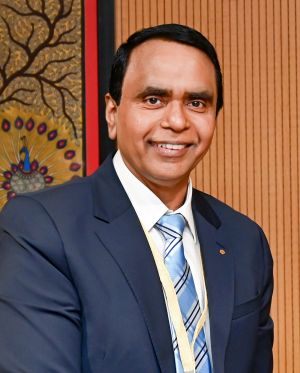
Dear Readers,
Thank you for your steadfast support of the ‘Sustainable Newsletter’ and actively learning about the sustainability challenges we face. It is truly our concern for each other and our planet, coupled with our interest to improve, that will propel us forward.
As we mark World Population Day on July 11th, we are reminded of the intricate tapestry of life woven across our planet. With the global population poised to exceed 8.5 billion by 2030, this tapestry grows denser, its threads more intertwined. Understanding the patterns within this intricate design is essential to ensuring a harmonious future. This edition of our newsletter delves into the multifaceted issue of population growth and its environmental footprint.
By examining the potential strains and benefits of a burgeoning population, we aim to foster a nuanced understanding of this much debated topic. Yet, the truth remains: collective action will define the trajectory of our planet. Like gardeners tending to a delicate ecosystem, we must cultivate a balance between human prosperity and planetary health.
As we navigate the complexities of a growing population, let us remember that our individual choices hold immense power. By embracing sustainable human behaviour in our daily lives, we can make sustainability a way of life. Let us be champions of our environment, mindful consumers, and compassionate global citizens.
With the strength of our determination and collective action, we can safely steer our ship out of the eye of the storm.
Warm Regards
Vishesh Gupta
Chairperson, Bharat Soka Gakkai
“When I’m done, half of humanity will still exist. Perfectly balanced, as all things should be.” — Thanos
In the 2018 movie ‘Avengers: Infinity War,’ Thanos is resolutely focused on his goal of wiping out half of the universe’s population. His motivation is clear: he believes that by reducing the population by 50%, he can save dwindling resources and restore the “natural” order. Though labelled as a “supervillain,” Thanos is a character whose moral stance still sparks debate. While we can unanimously agree that Thanos’ actions are indefensible, is there any validity to his claims? Or is there something deeper that needs exploring? Let’s find out.
The global human population has seen remarkable expansion, increasing over threefold since 1950. As of today, it stands at 8.1 billion (UNFPA, 2024) and is anticipated to surpass 8.5 billion by 2030, the target year for achieving the Sustainable Development Goals (SDGs).
With the global population more than doubling from 1961 to 2016, the demand for food has surged. This increase has put additional strain on the limited land available. Between 1961 and 2016, the amount of cropland per person worldwide decreased steadily, from 0.45 hectares to 0.21 hectares (FAO, 2020). At the same time, numerous regions worldwide are experiencing a water crisis. Climate change, unrestrained urbanisation, rapid population expansion, pollution, and land development all contribute to the situation. According to the Food and Agriculture Organization (FAO), by 2025, 1.8 billion people will likely encounter “absolute water scarcity” , while a significant portion of the global population, estimated at two-thirds, may become water-stressed.
Population growth raises total economic demand. What that does is create pressure to produce more. This, in turn, promotes resorting to unsustainable forms of production. When economic decisions prioritise production and consumption without considering the toll it takes on the environment, the health of the planet suffers. (UN-DESA, 2022). The over-reliance on fossil fuels has already been exhausting the atmosphere’s capacity to absorb heat-trapping gases. We surely cannot afford to tread on the path of irresponsible production and consumption anymore.
A by-product of the strain on natural resources is social conflict. Apart from factors like environmental change and market pressures, population growth may also lead to conflicts over securing key resources. Wars over water, land, and energy in the Middle East already serve as unpleasant examples.
But the 8 billion mark is not all that scary. It signals human progress. A rise in population suggests improvements in healthcare access, with more newborns thriving and children reaching adulthood.
As United Nations Fund for Population Activities (UNFPA) Executive Director Dr. Natalia Kanem said, “Human reproduction is neither the problem, nor the solution. When we put gender equality and rights at the heart of our population policies, we are stronger, more resilient, and better able to deal with the challenges resulting from rapidly changing populations.”
True development is in building focus on reproductive health, education and gender equality, and empowering individuals to make informed choices (UN-DESA, 2022).
Reversing demographic trends may not be a fool-proof solution. Sustainability must be achieved by the active implementation of resource efficiency in consumption and production and by decoupling economic growth from damage to the environment.
So, what are we to do with all this information? Here’s something you’d be happy to learn: humans can turn the tide. Greenpeace India’s report ‘Flexicity’ made this discovery about Bengaluru: During the lockdown period (May 2020), a dramatic 60% fall in traffic density was noted, with a commensurate decline in AQI to 61 from 95 (in pre-lockdown months). According to the analysis, vehicular emissions are a key contributor to air pollution in Bengaluru, which explains why the AQI dropped during the COVID lockdown.
Rather than waiting for something like a lockdown to push us towards living sustainably, one should develop a natural inclination for it. Humans certainly possess the ability to create more immediate and positive change. Air quality is perhaps the fastest to react to positive change and other aspects of the climate may not react as quickly. However, any permanent solution still comes down to reducing our collective carbon footprint. International climate change agreements will do their bit, but our personal commitment is crucial. Whether using local transportation or increasing the green cover of the planet, every action counts. Being conscious about our carbon footprint will not only reduce emissions but also cultivate a society that is innately aware of its responsibility to the environment.
In short, Thanos could have paused and considered the power of collective action in addressing the most pressing challenges of the world.

Resource Efficiency
Resource efficiency means being smart with how we consume. This becomes increasingly important in the context of a growing population and its pressures on limited natural resources. Making the best use of existing resources would allow us to derive more benefit from them, without using up additional resources (EEA, 2020). By using things wisely, we waste less and get the same results.
Think about taking a shorter shower or turning off lights in empty rooms. These little things add up! Resource efficiency helps us save money, protects the environment, and even ensures there’s enough for everyone in the future.
Natural resources are our natural capital. Irresponsible use of natural capital will reduce its ability to support economic growth. In addition, encouraging resource efficiency can make business more competitive, generate employment, foster innovation, support industries like resource recovery and recycling, and assist steady supplies of essential resources (EEA, 2020).
Resource efficiency goes beyond saving resources. It also improves our well-being in ways money can’t buy. Imagine breathing fresh air, swimming in clean water, and enjoying nature’s beauty. That’s the kind of quality of life a healthy environment provides.
 To Read
To Read
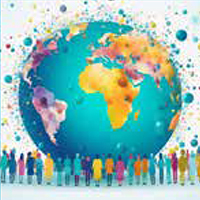
8 Billion People: 10 Facts on World Population
How has the 8 billion mark in global population changed the features of the 21st century?
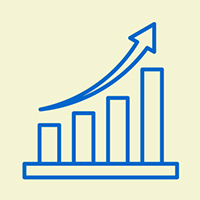
World’s population just passed 8 billion – here’s what it means
The article provides a quick look at the history, present, and future of demographic trends.
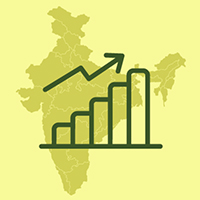
India’s Population Passes 1.4 Billion – and that’s not a bad thing:
The article explores how the country’s demographic trends could be leveraged for positive outcomes, emphasising the importance of effective policy-making and investment in human capital.
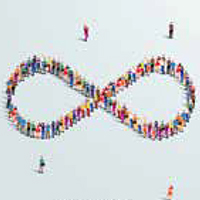
8 Billion Lives, Infinite Possibilities
The UNFPA’s State of World Population Report 2023 looks at global population from multiple socio-political lenses. This webpage has turned it into an interactive, graphically engaging read.
 To See
To See
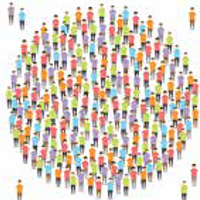
The infamous overpopulation bet: Simon vs. Ehrlich
This interesting, animated TedEd video recounts an infamous overpopulation bet between two professors and explains who won and why.
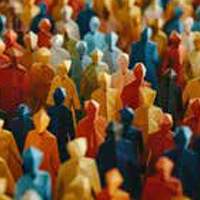
Is overpopulation really a problem for the planet?
Are rising human numbers a threat to the environment? How does population affect climate change? What are the multiple factors to be considered?
 To Listen
To Listen
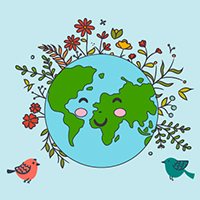
What a Wonderful World – Louis Armstrong
The timeless song that never fails to remind one of the joys of living in this world, together with all its inhabitants.
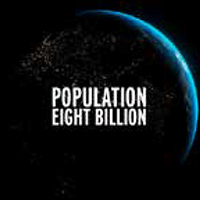
Population 8 Billion – The Podcast
This limited series podcast takes a deep dive into what a world of 8 billion people means for the planet, the environment, and the future of our diverse societies.
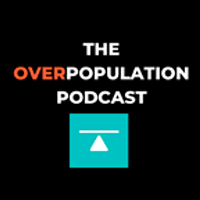
The Overpopulation Podcast
This podcast series presents insightful discussions with Executive Director Nandita Bajaj, researcher Alan Ware, and various expert guests. Together, they explore the frequently overlooked effects of our growing human footprint on human rights, animal protection, and ecological preservation, while also addressing both individual and collective solutions.
 To Play
To Play

Test your knowledge on human numbers
The easy, medium, and hard levels of this quiz drive home many important facts.

The World Population and Me
How many people were there on the planet when you were born? How many people were born the same year as you? Are you counted among the old or the young? Enter your age in this webpage and find out.

2022 World Cup Population Game
Play this fun game to test your knowledge of the world population. Do you know which country has a larger population than the other? Play this game to see if you can get a perfect score.
8.1 billion of us exist at the same time and in the same world, but our lives are very different in quality and experience. While some parts of the world have developed rapidly, others remain trapped in poverty and hunger. The UNFPA Executive Director, Dr. Kanem has noted that “too many continue to be left behind and unable to enjoy their rights”.
In his essay, “A Jewelled Canopy of Human Solidarity”, the Founding President of SGI, Mr. Daisaku Ikeda recalls a dialogue he once had with the economist and US ambassador to India (1961-63), John Kenneth Galbraith. When Mr. Ikeda asked him how we should shape the world of the 21st century, he replied that we should aim to create “a century in which people can say, ‘I enjoy living in this world.’”
In his article, “Tuning in to self-reflection for peace sake”, Mr. Ikeda cites an episode from the life of Gautam Buddha. He writes, “Living in ancient India, Buddha often witnessed violent confrontations over resources. When two tribal groups, one of which is considered to have been related to his family line, were in conflict over water, instead of focusing on their identities or confrontation, he turned his attention to the actual conditions in which people on both sides were suffering from a desperate shortage of water, saying that they were like fish writhing in shallow water.
He identified what he considered to be the essence of the problem: “I perceived a single, invisible arrow piercing the hearts of the people.” Their minds were clouded, and they could not recognise that the other group shared their concerns over the lack of water or the constant fear of being attacked and overrun.”
As globalisation advances, we are presented with contradictory realities. With widespread cross-border travel, there is economic prosperity, but there is also social unrest. The tendency of “othering” people and dwelling on the differences has proved to be an unfortunate side-effect of globalisation. As Mr Ikeda says in the 2016 Peace Proposal: “Many countries have seen an influx of people from diverse cultural backgrounds, providing new opportunities for interaction and exchange. At the same time, however, there has been an increased incidence of racism and xenophobia.” In the 2015 Peace Proposal, Mr. Ikeda refers to this phenomenon as casting the “discriminatory gaze”.
In the same Proposal, Mr. Ikeda writes, “Hate speech, for example, is becoming a serious social problem in many countries. Even when it does not lead to the direct violence of hate crimes, it arises from the same malevolent urge to harm others. As such, it is a human rights violation that cannot be ignored. There is no one who would find violence or oppression based on prejudice directed at them or their families acceptable. But when it is directed at other ethnicities or populations, it is not unusual for people to consider it justified by some fault or failing on the part of the victims.”
Further, he adds: “While peace and justice should be experienced as a common good, when they are rendered divisible by an excessive concern with the self they can serve to justify violence and oppression against other groups with whom we find ourselves in conflict.”
Mr Ikeda offers a solution to this problem in the 2016 Peace Proposal: “In order to construct societies that are resistant to xenophobia and incitement to hatred, people need to be exposed to and reminded of different perspectives. Face-to-face dialogue can play a crucial role in this.”
The larger the population, the more crucial it becomes for people to come together to engage in heartfelt dialogue. Open dialogue is the key to dismantling the destructive “us versus them” divide. It allows us to recognize the profound interconnectedness of all life. By bridging the chasms of mistrust and isolation, we can foster a future where all living beings on Earth can flourish. A large population, when coupled with ‘sustainable human behaviour’, respectful communication and mindful actions, becomes a strength, not a burden. This collective responsibility is the path to a sustainable future for our planet, a future where every species can genuinely say, “I enjoy living in this world”.
This time is now to ask ourselves how we can relentlessly support each other and vigorously exercise our inherent empathy that “exists independent of any codified norms of human rights” (Mr. Ikeda, 2016 Peace Proposal).
Micro changes lead to a macro transformation Anju Wadhwa | Women’s Division | Gurugram
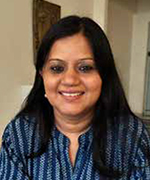
I became a voluntary member of Bharat Soka Gakkai in 2014. The more I understood about the life philosophy of ‘Soka humanism’, the more I realised – everything boils down to us as an individual and our behaviour. It was for this reason that the concepts of ‘human revolution’ and ‘sustainable human behaviour’, two of the fundamental concepts of self transformation as taught in BSG, inspired me deeply. I vowed to live mindfully, conscious of my behaviour and this started reflecting in my actions slowly and naturally.
In 2018 when we moved from Delhi to Gurgaon, while shifting I realised how much unnecessary stuff I had collected over the years which was of no use now. Reading BSG journals helped me understand that the more the population of Earth increases, the more ‘stuff’ people are going to own. Consequently, the more of Earth’s natural resources are going to be consumed in this process and the deeper the impact it will have on nature and various species. Hence, when we moved to Gurgaon, I decided to live more mindfully, specially focusing on generating less waste. I also decided to increase my knowledge on the subject.
The ‘BSG for SDG’ initiative and the mobile app launched by BSG brought in so much more awareness and helped me realise my future plan of action. The way forward had to be a ‘sustainable lifestyle’.
I plunged myself into studying and understanding the SDGs along with other BSG members. This inspired me to take concrete action. Though moments of doubt would creep in, making me question – how much can my actions make a difference. But I reminded myself of the Buddhist concept of ‘the power of one’, as explained by my mentor Mr. Daisaku Ikeda. He writes: “A great human revolution in just a single individual will help achieve a change in the destiny of a nation and, further, will enable a change in the destiny of all humankind.” As the famous Japanese adage goes – “one is the mother of ten thousand”.
I simplified sustainability to being mindful on a daily basis and incorporated a few simple changes in my lifestyle on a regular basis, such as:
- Carrying a water bottle and a shopping bag before heading out of the house.
- I still use my old plastic containers but have almost stopped buying new plastic containers and bottles. I now reuse glass jars of honey, sauces etc for storing food.
- I always look for non plastic packaging while buying groceries.
- I have switched to more DIY stuff like cold pressed oils as body lotions, gram flour (besan) as a face cleanser.
- Earlier, I used to hoard and hold on to things I did not need for the emotional value they had but now I happily donate those to people who need it.
- During the ‘BSG for SDG’ 25-tonne Plastic Collection Drive, we got into the habit of segregating our plastic waste. I have continued with that and regularly send it for recycling through a NGO.
- Recently, I started to make bio enzymes out of fruit peels. These bio enzymes act as a multi purpose cleaner which can be used to clean the toilets, glass and mirrors, and can be used in place of Lizol as a disinfectant. I have also gifted this wonderful disinfectant to many people and my sister too has started to make her own batch of bio enzymes.
These and more are the small changes I made to my lifestyle to become a more active and conscious citizen and be part of the solution than be part of the problem. I have also started to expand this awareness to other people in my environment by having dialogues with them on sustainability. Many people are still unaware of all the waste they are generating. I am determined to keep encouraging others to incorporate simple micro sustainable practices in their lifestyle. I am confident, as others will start enjoying those micro changes, they will automatically incorporate more such practices in their day-to-day life to contribute towards a better world.
Breaking barriers to change the beauty industry, one stereotype at a time Gauri Gupta | Young Women’s Division | Mumbai
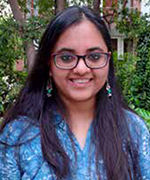
I became a voluntary member of Bharat Soka Gakkai in 2010. This was at a time when I had just begun my corporate career with a reputable FMCG firm – Unilever. As I began the 9to5 grind in my dream job, questions related to the purpose of my life began popping in my head. I had seen my mother practise the philosophy of Soka humanism for over a decade and heard the members of BSG speak about inherent happiness and finding a mission in life. This inspired me to read about the meaning of life and the purpose of work from the writings of Mr. Daisaku Ikeda – the founding President of SGI. Through his writings, I understood what it means to be an authentic leader. I took Mr. Ikeda as my mentor and applied his guidance at work. As a result, in my sales role, I was able to turnaround the performance of two of the weakest states I was responsible for.
Furthermore, being one of the few women in sales gave me the chance to experience the issues women face in this field – such as no access to clean toilets, safety regulations in hotels, disrespectful entertainment seen as common practice in sales teams, to name a few. I used my voice to bring about new policies related to safety of women and changes in subtle nuances of culture.
In 2015, I read Mr. Ikeda’s peace proposals where he mentions justice, equality and the crucial role women play in building a new age. This gave me a direction – of effecting social change via my work. I began choosing projects at my workplace that could use the power of brand narratives & advertising to bridge the gender gap by changing stereotypes.
I took on a seemingly impossible project – which was to change the name of a popular face cream brand owned by my organisation called “Fair & Lovely”. I wanted to shift the focus away from the stereotypical standard of beauty – fair skin. Most people in the marketing community at the time believed that this would never come into play, and this was antithetical to running a business. However, I was convinced in my heart that society needs to move forward from judging people based on their skin colour. A woman is so much more than how she looks. As the world population continues to grow, it’s time to leave these outdated notions far behind us and bring our focus on respecting the dignity of all life.
The determination to make a change was strengthened in my life when I came across Mr. Ikeda’s2017 Peace Proposal where he shares the efforts of a Tanzanian woman to change her village. He shares: “The ability to solve problems is not something reserved for special people: It is a path that opens before any of us when we face reality head-on, taking up some aspect of its weighty burden and acting with persistence.” I resolved to be the agent of change to contribute in my own way to SDG 5 – Gender Equality.
I spent the next couple of years leading several pieces of consumer research and having strategy conversations with the company leadership to make the change possible. Despite resounding evidence that we can make this change without losing consumer franchise, this was a tough decision for the company to take, and the top leadership who were most invested in this had retired. In regular parlance, the project was doomed to never happen. However, based on my spiritual training in Gakkai, I was determined and didn’t give up. I requested permission to continue collecting more data.
On 25th May 2020, George Floyd was shot dead in the US because of his skin colour – triggering a global uproar. Within a few days, the global leadership of Unilever decided to reopen the project. Realising the work is ready to take to market – the formal announcement of the name change was made in June 2020, and change effected in August 2020 in India – followed by 20 countries in the next few months. The brand that has over 1 billion consumers across the world, Fair & Lovely, was now to be called Glow & Lovely.
This brought about a landmark change in the beauty industry where many other top players in the field decided to remove the words white, fair, and light when it came to skin tone – effecting a big change in how women & men across the world perceive beauty.
Though the journey towards this goal was filled with challenges, it helped me bring forth my own inner potential. I am even more determined now to continue using my life to break barriers and hand-build a new society where the dignity of all life is respected.
 SDG Tip for Daily Life
SDG Tip for Daily Life

Do you remember that old story about starfish adapted from The Star Thrower by Loren Eisley?
Here’s how it goes: “An old man had a habit of early morning walks on the beach. One day, after a storm, he saw a human figure in the distance moving like a dancer. As he came closer he saw that it was a young woman and she was not dancing but was reaching down to the sand, picking up a starfish and very gently throwing them into the ocean.
“Young lady”, he asked, “Why are you throwing starfish into the ocean?”
“The sun is up, and the tide is going out, and if I do not throw them in they will die.”
“But young lady, do you not realise that there are miles and miles of beach and starfish all along it? You cannot possibly make a difference.”
The young woman listened politely, paused and then bent down, picked up another starfish and threw it into the sea, past the breaking waves, saying: “It made a difference for that one.” The old man looked at the young woman inquisitively and thought about what she had done. Inspired, he joined her in throwing starfish back into the sea. Soon others joined, and all the starfish were saved.”
“You don’t need to quit your job and become a climate activist,” said Genevieve Guenther, founder of the media-focused group End Climate Silence. “With enough people, one little thing every week can make a huge difference.”
Let’s adopt a small eco-friendly habit and practise it every day.
Tell us how you are living sustainably. Send in your inspiring efforts and actions to us at sdg@bharatsokagakkai.org.
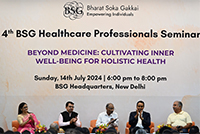
Updates
BSG holds 4th Healthcare Professionals Seminar
The 4th BSG Healthcare Professionals Seminar was held on 14th July 2024 at the BSG Headquarters, New Delhi, with the theme “Beyond Medicine: Cultivating Inner Well-Being for Holistic Health”. Nearly 1000 BSG members and guests attended the Seminar.
Read more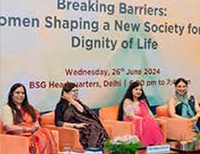
BSG holds 4th Women’s Symposium
The 4th BSG Women’s Symposium was held on 26th June 2024 at the BSG Headquarters, New Delhi, with the theme “Breaking Barriers: Women Shaping a New Society for the Dignity of Life”. Nearly 6000 BSG members & guests attended the Symposium.
Read more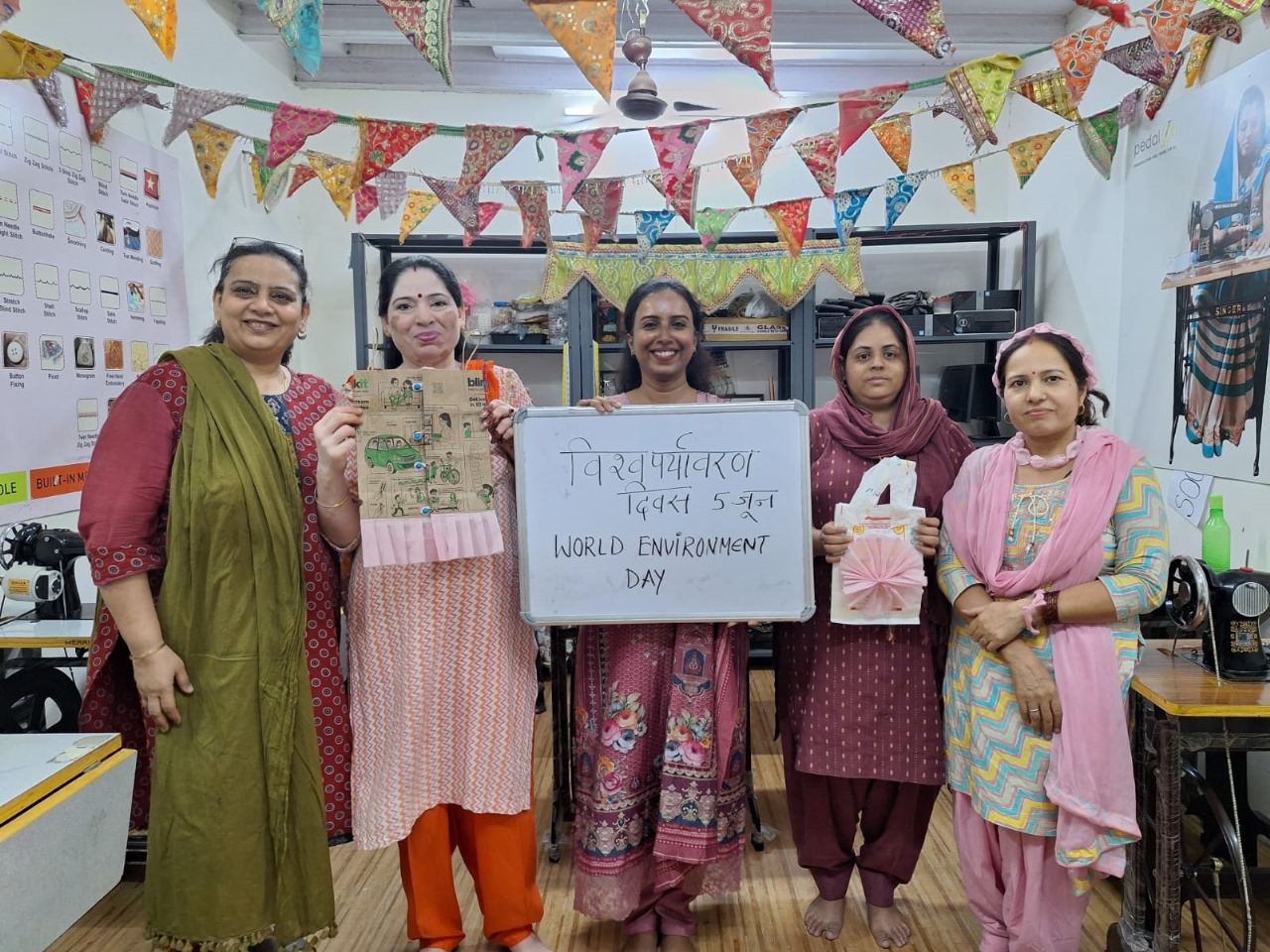
Environment Day Awareness Session held at Pedal On
BSG volunteers conducted a very creative and participatory session on 8th June 2024 with women workers of Pedal On – an NGO dedicated to empowering women from the underprivileged section of society.
Read more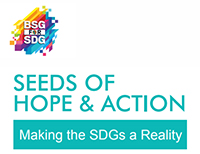
BSG takes SOHA to various educational institutes
The “Seeds of Hope and Action (SOHA): Making the SDGs a Reality” exhibition travelled to various schools and colleges, including: Tiny Tots Higher Secondary School, Jammu; KC Public School, Jammu; Indian Institute of Remote Sensing, Dehradun; Cluny Women’s College, Kalimpong; Guru Nanak Public School, Dalhousie; The Cambridge International School, Harlur, Bengaluru, and Miranda House, Delhi.
A total of 136 SOHA exhibitions have been organised by BSG uptil now.
Read more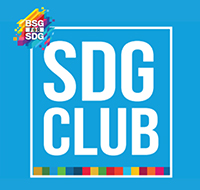
BSG forms 25th SDG Club in Dogra Higher Secondary School, Jammu
As part of its mission to foster young SDG ambassadors in Indian schools and colleges, BSG established the 25th SDG Club in Dogra Higher Secondary School, Jammu.
Read moreContact Us
 Any queries or suggestions regarding the newsletter can be addressed to sdg@bharatsokagakkai.org
Any queries or suggestions regarding the newsletter can be addressed to sdg@bharatsokagakkai.org
 To know more about the ‘BSG for SDG’ initiative, visit the BSG for SDG website
To know more about the ‘BSG for SDG’ initiative, visit the BSG for SDG website
 Download the ‘BSG for SDG’ mobile app with the carbon footprint calculator
Download the ‘BSG for SDG’ mobile app with the carbon footprint calculator
